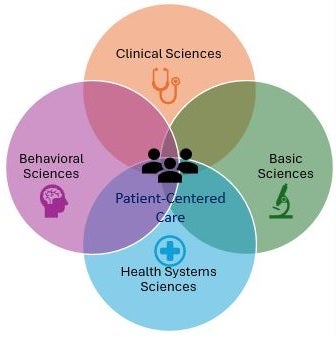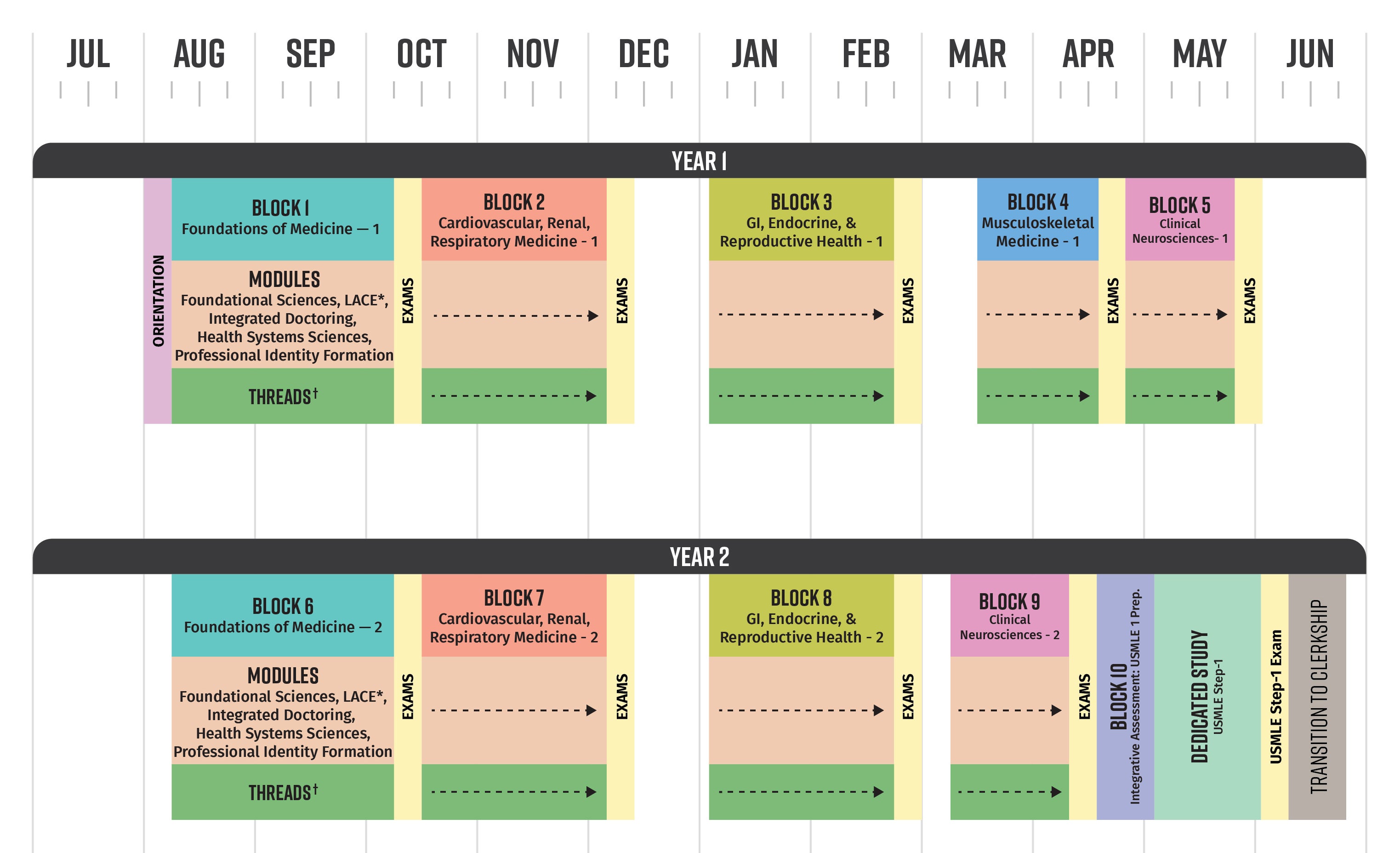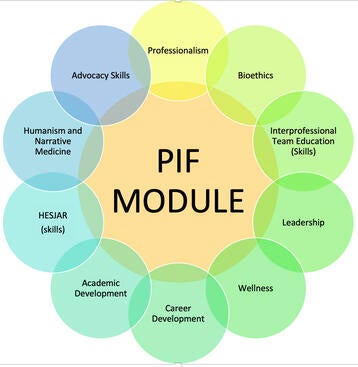
Years 1 & 2 Systems-Based Integrated Sciences Phase
Years one and two will integrate human biology and disease with clinical, behavioral, and health systems sciences, preparing students to understand medicine as a multidimensional discipline centered on patient care.
Changes include:
- Realign content sequencing across all block courses to enhance coverage of UCR SOM Medical Education Program Objectives (the competencies achieved by all graduating students) and USMLE content areas.
- Adopt earlier integration of disease states into Year 1.
- Reinforce foundational science content from Year 1 into Year 2, with a redesigned USMLE 1 prep Block 10 course.
- Enhance the Y1, Y2 developmental curriculum in clinical reasoning, pharmacotherapy, etc. into Y3.
- Continuing integrated anatomy and ultrasound education.
- Expand the case-based learning format in Integrated Doctoring modules through a “learning communities” model.
- Students will continue to have opportunities for classroom-based electives.
Schedules for Years 1 and 2
Years one and two will see a systems-based integrated sciences phase. This will bring together 10 block courses, each made up of five modules and curricular threads.
Year 1: An Integrated Approach to Human Biological Systems
- Block 1: Foundations of Medicine I
Surveys principles of genetics, and molecular, cellular and developmental biology in relation to human disease processes. - Block 2: Cardiovascular, Renal, & Respiratory Medicine I
- Block 3: Gastrointestinal, Endocrine, & Reproductive Health I
- Block 4: Musculoskeletal Medicine
- Block 5: Clinical Neurosciences I
Year 2: An Integrated Approach to Pathophysiology of Disease
- Block 6: Foundations of Medicine II
Covers the pathophysiology, pharmacology, physical diagnosis and treatment of bacterial, viral, fungal and parasite-mediated infectious diseases; host defense and immunity; immune system disorders; topics in clinical hematology and oncology; and epidemiology and clinical reasoning skills. - Block 7: Cardiovascular, Renal, & Respiratory Medicine II
- Block 8: Gastrointestinal, Endocrine, & Reproductive Health II
- Block 9: Clinical Neurosciences II
- Block 10: Integrative Assessment: USMLE 1 Preparation
Five Modules in Each Block Course
Foundational Sciences Module
- Continue to deliver high quality education in histology, cell biology, physiology, anatomy, genetics, pathology, diagnosis, behavioral sciences instruction, and more opportunities to apply foundational science concepts to clinical scenarios.
Longitudinal Ambulatory Care Experience (LACE) Module
- Continue the longitudinal clinical experience and enable students to integrate what they are learning in the other modules to real world experiences.
- Continue to be the home of the health system sciences projects.
Integrated Doctoring Module
- Integration of doctoring skills, clinical skills, case-based learning (CBL) content and clinical reasoning education.
- An excellent opportunity to strengthen self-directed learning, evidence-based medicine, cognitive integration, clinical reasoning, appropriate use of artificial intelligence in medicine, and life-long learning competencies.
Health Systems Sciences Module
- Developing doctors that navigate patients thru health system complexities
- Covering topics such as biostatistics, epidemiology, evidence-based medicine, value-based care, public health, health disparities, medical economics, quality and safety, law, and interprofessional education.
Professional Identity Formation Module
- During medical training students develop professional values, beliefs, behaviors, relationships, roles, and responsibilities essential to becoming a physician.
- The module focuses on leadership skills, wellness, bioethics, professionalism, advocacy and stewardship, culturally responsive care, humanism and narrative medicine, adopting effective learning strategies, precision education and career advising, providing enhanced support for students who may be the first in their family to go to medical school.


